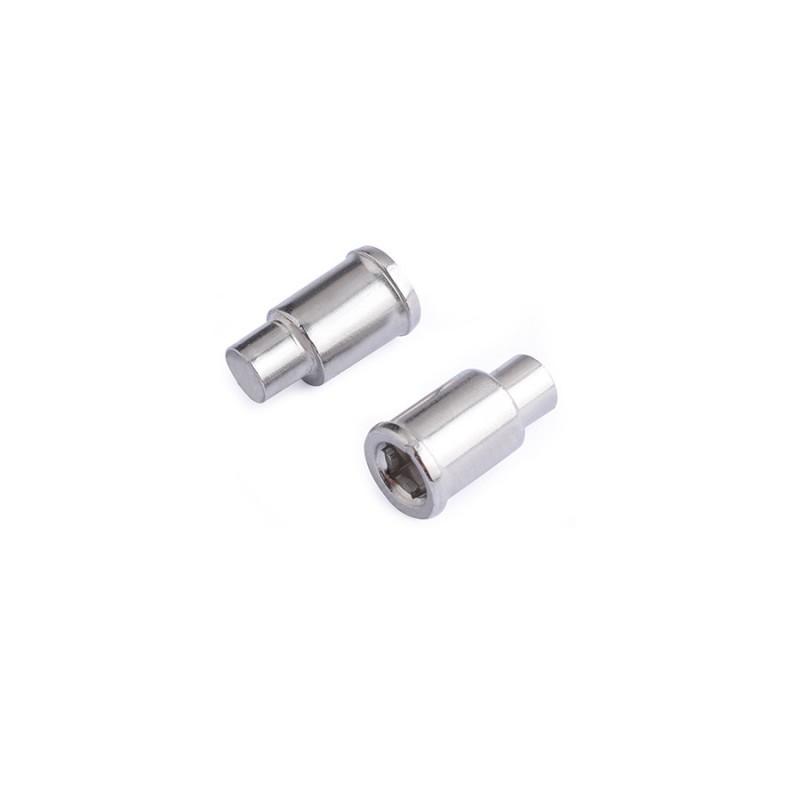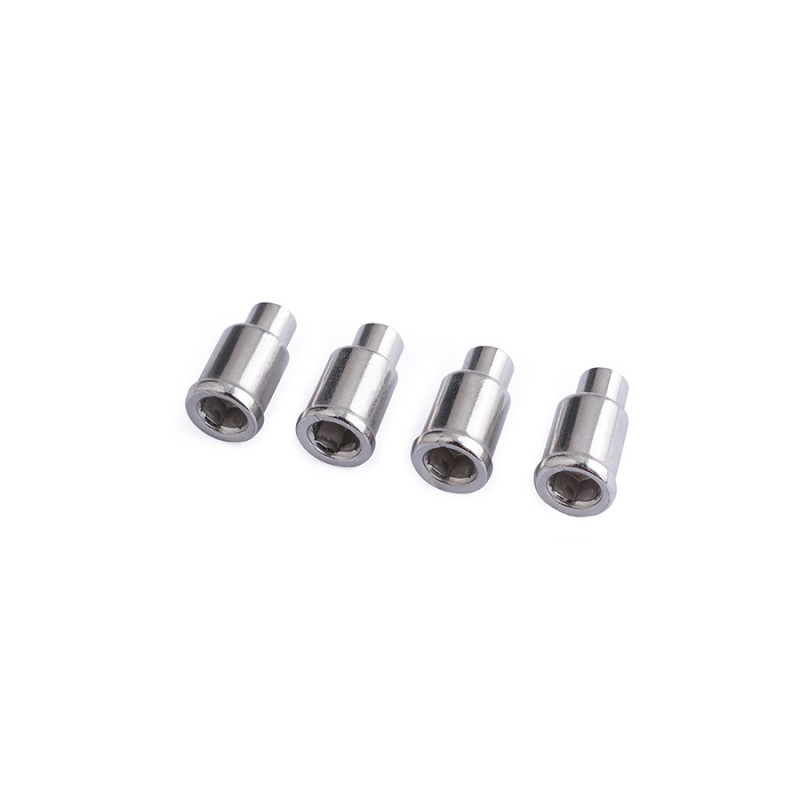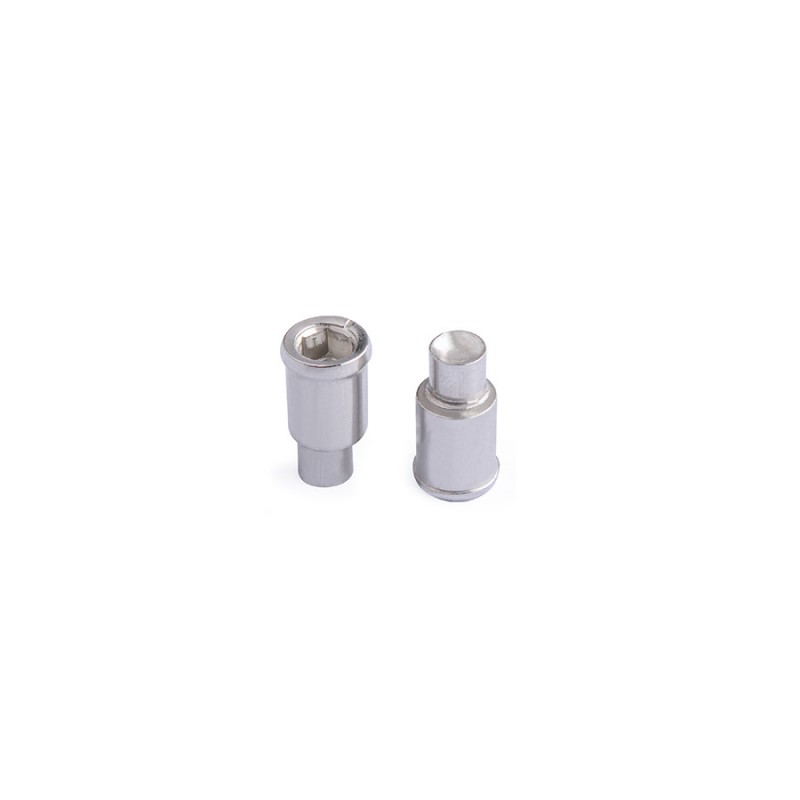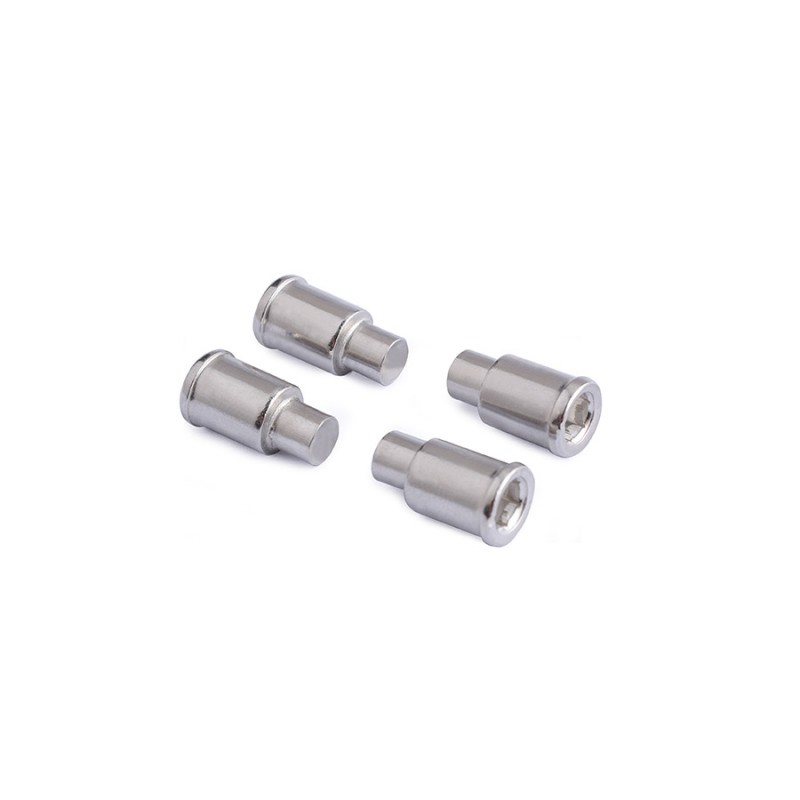- Time:2024/12/26 Posted:Dongguan Jierui Hardware Technology Co., Ltd
When it comes to manufacturing precision components, custom cold headed fasteners play a crucial role in a variety of industries. These fasteners, including bolts, screws, and rivets, are made using a specialized process called cold heading. Understanding how cold formed fasteners are made can help you make informed decisions when sourcing them for your projects. In this article, we'll take a closer look at the process, its benefits, and what makes cold heading fastener manufacturers so essential to the production of high-quality fasteners.

What is Cold Heading?
Cold heading is a specialized process used to shape metal into high-precision fasteners. Unlike traditional machining methods that remove material, cold heading involves deforming the metal without applying heat, hence the term "cold." The metal is fed into a machine called a heading press, where it is rapidly compressed and formed into the desired shape. This process is highly efficient and allows manufacturers to produce fasteners with precise dimensions and strong mechanical properties.
The Cold Heading Process for Fasteners
The cold heading process for fasteners typically involves several stages, each designed to achieve the desired shape, size, and strength for the fasteners. Here's an overview of the key steps involved:
Blanking: The first step is to cut the raw material (usually wire or rod) into small pieces known as "blanks." These blanks are prepared for the next stage of shaping.
Forming: The blanks are placed into the heading press, where they are pressed and deformed to form the basic shape of the fastener. This step often includes creating the head of a bolt or the threads of a screw.
Shaping: The metal is further shaped by the press, sometimes involving multiple hits to achieve the correct dimensions, such as the length and diameter of the fastener.
Trimming: After the forming process, excess material is trimmed away to ensure the fastener has clean, precise edges and is free from any unnecessary material.
Heat Treatment: Depending on the application, some fasteners may undergo heat treatment to improve their strength and durability. The cold heading process ensures that the metal retains its hardness, while heat treatment can further enhance its mechanical properties.
Finishing: Finally, the fasteners are finished by processes such as plating, coating, or polishing to improve their appearance and corrosion resistance.

Why Choose Custom Cold Headed Fasteners?
Custom cold headed fasteners are essential for applications where high precision and strength are required. Here are a few reasons why they are so popular:
Precision: Cold heading allows for the production of fasteners with exact specifications, ensuring they fit perfectly in their intended applications.
Cost-Effective: Compared to traditional machining methods, cold heading is a more cost-effective process, especially for high-volume production. The reduced waste and faster production times contribute to lower overall costs.
Strength: The cold forming process improves the material's grain structure, resulting in stronger, more durable fasteners. This makes them ideal for applications where reliability is critical, such as in automotive, aerospace, and industrial machinery.
Customization: One of the key advantages of cold formed fasteners is that they can be fully customized to meet the specific needs of a project. Whether it's a unique size, shape, or material requirement, cold heading fastener manufacturers can tailor the fasteners to suit your needs.
Consistency: The cold heading process ensures that each fastener produced is consistent in quality, with minimal variations in size and shape. This is crucial for projects that require a large number of identical parts.

The Role of Cold Heading Fastener Manufacturers
The role of cold heading fastener manufacturers is pivotal in ensuring that high-quality fasteners are produced efficiently and meet industry standards. These manufacturers use specialized equipment and employ experienced engineers to oversee the cold heading process. They also ensure that the final product adheres to strict quality control measures and complies with any relevant certifications and regulations.

Moreover, custom cold headed fasteners manufacturers are skilled at working with various materials, such as stainless steel, carbon steel, and aluminum, to meet specific performance requirements. Their ability to customize fasteners for specific industries and applications makes them indispensable in manufacturing and construction sectors.The process of making custom cold headed fasteners is a precise and efficient way to produce strong, durable, and cost-effective fasteners for various industries. Whether you need cold formed fasteners for a large project or cold heading fastener manufacturers to produce highly customized components, cold heading ensures high-quality results that meet your exact requirements. By choosing the right manufacturer, you can ensure the success of your projects and improve the reliability of your products.
FAQs:
1. What materials can be used for cold headed fasteners?
Cold headed fasteners can be made from a variety of materials, including steel, stainless steel, aluminum, brass, and copper alloys. The choice of material depends on the specific application and its mechanical requirements.
2. What industries use cold headed fasteners?
Cold headed fasteners are widely used in industries such as automotive, aerospace, electronics, construction, and industrial machinery. They are particularly valuable in applications where high strength and precision are required.
3. How can I ensure the quality of custom cold headed fasteners?
To ensure high-quality fasteners, it’s essential to work with reputable cold heading fastener manufacturers who follow strict quality control procedures. Look for manufacturers who use advanced equipment, provide certification, and can perform rigorous testing to meet your specifications.
4. What is the difference between cold headed fasteners and cold formed fasteners?
The terms "cold headed" and "cold formed" are often used interchangeably, but cold forming refers to the broader process of shaping metal at room temperature, while cold heading is a specific type of cold forming focused on producing fasteners. Both processes aim to produce strong, precise components.
5. Can cold headed fasteners be customized?
Yes, custom cold headed fasteners are highly customizable. Manufacturers can tailor the size, shape, material, and finish of fasteners to meet specific needs, making them ideal for unique or specialized applications.
